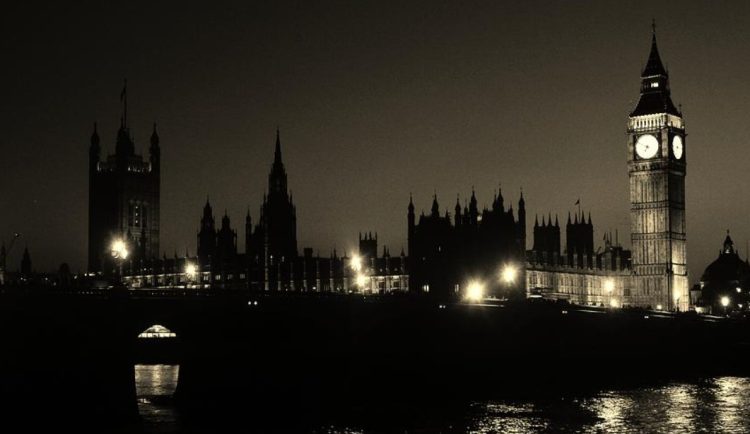A recent investigation by Metro has uncovered that several MPs who were suspended over sexual misconduct allegations still retain unescorted access to Parliament through ‘category X’ passes. This revelation has raised concerns about transparency and accountability, with calls for stricter rules governing access to the parliamentary estate.
Suspended MPs with Full Access
Two former MPs, Simon Danczuk and Ivan Lewis, who were suspended from the Labour Party over sexual misconduct allegations, are among the 242 ex-members who still hold ‘category X’ passes, granting them access to the Palace of Westminster. Despite no longer holding seats in the House of Commons, these MPs enjoy privileges typically reserved for current members.
Danczuk, the former MP for Rochdale, was suspended in 2015 following allegations that he sent explicit text messages to a 17-year-old girl. Although he resigned from the Labour Party in 2017, citing its shift to the “far left,” data from the Freedom of Information Act reveals that Danczuk used his pass six times last year and three times this year. Additionally, in 2016, he was ordered to repay over £11,000 after admitting to an “error” in expense claims.
In response to the investigation, Danczuk defended his position, stating: “I resigned from the Labour Party in 2017 because it was being led by a far-left north London Labour elite. The expenses investigation was extremely flawed, and I would refuse to pay the money back if I had my time again.”
Ivan Lewis, the former MP for Bury South, was suspended in 2017 following allegations of sexual harassment. A woman alleged that Lewis touched her leg and invited her to his house during a Labour event when she was 19. Lewis denied the harassment claims but apologised if his behaviour made any women uncomfortable. Despite the suspension, he too retains a pass and has used it once in 2023.
Other MPs Under Scrutiny
The investigation also identified other former MPs who continue to access Parliament despite facing serious allegations. Damian Green, who was sacked from Theresa May’s cabinet in 2017 after breaching the ministerial code, is still a passholder. Green was found to have made misleading statements regarding claims that pornography was discovered on his office computer. Green lost his Ashford seat in the most recent election and has used his pass three times up to the end of August.
David Ruffley, a former Conservative MP for Bury St Edmunds, was issued a police caution in 2014 for common assault against his former partner. Although he did not stand in the 2015 election, Ruffley still has access to the parliamentary estate and made one visit in both 2023 and the previous year.
Transparency Concerns and Public Criticism
The ongoing access enjoyed by these former MPs has raised questions about the parliamentary system’s oversight and transparency. Peter Lapham, an activist who campaigns against MPs having second jobs, has criticised the process, stating, “Every employer I’ve known operated the policy that if you were suspended, any pass you had, whether it was a building or computer pass, was voided immediately. I don’t see why this isn’t the same for MPs.”
In total, former MPs accessed Parliament 1,041 times over 2023 and the current year up to August 24, according to the data. Alistair Burt, a former Conservative MP, was the most frequent visitor, logging 31 visits during this period.
Former MPs who have served more than two parliamentary terms or for six years—whichever is longer—are eligible to apply for a Former Member Pass. These passes grant limited access to certain areas of the parliamentary estate, including catering facilities and meeting rooms during specific hours.
Lobbying and Potential Conflicts of Interest
An investigation by Peter Geoghegan, author of Democracy for Sale, uncovered that many former MPs with ‘category X’ passes are also lobbyists. This includes individuals representing industries such as nuclear energy, gambling, and gas boilers, further raising concerns about conflicts of interest.
Geoghegan told Metro: “The system of providing passes to former MPs is the very opposite of open government. Suspended ex-MPs can use their X passes with impunity, but the public is not allowed to know anything about this.”
Parliament’s Response
A House of Commons spokesperson responded to the revelations by stating: “Processes are in place to ensure applications for former members’ passes can only be made by those who meet the criteria. There are limits on the facilities former members may use within Parliament, and they are forbidden from using their pass in connection with lobbying activity.”
Despite this assurance, critics argue that more needs to be done to ensure transparency, particularly regarding the activities of former MPs who have been suspended due to serious allegations.
A Call for Change
With public trust in politicians already fragile, this investigation has intensified calls for reform. Many believe that MPs who have been suspended or resigned under controversial circumstances should have their access to Parliament revoked, at least until they are cleared of any wrongdoing.
As pressure mounts, the question remains: Should former MPs who have faced serious allegations retain privileges within the heart of UK democracy, or is it time for Parliament to rethink its approach to transparency and accountability?
You may also like: Kay Burley’s tense interview with Tory chairman over Jenrick’s Star of David proposal







